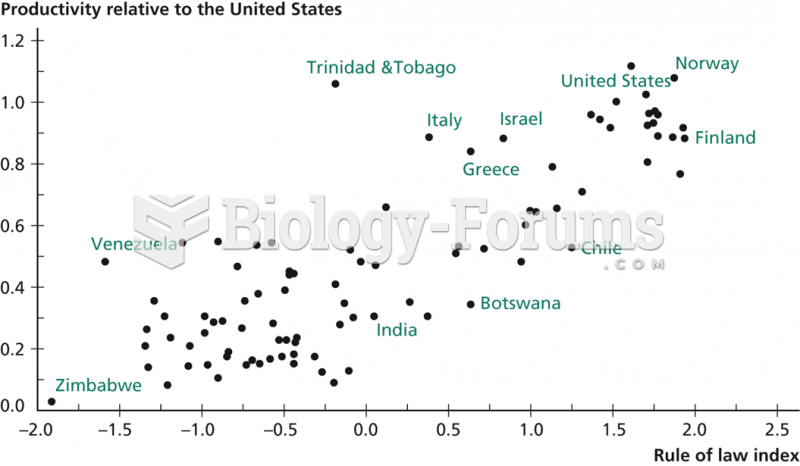|
|
|
More than 20 million Americans cite use of marijuana within the past 30 days, according to the National Survey on Drug Use and Health (NSDUH). More than 8 million admit to using it almost every day.
There are immediate benefits of chiropractic adjustments that are visible via magnetic resonance imaging (MRI). It shows that spinal manipulation therapy is effective in decreasing pain and increasing the gaps between the vertebrae, reducing pressure that leads to pain.
Eating carrots will improve your eyesight. Carrots are high in vitamin A (retinol), which is essential for good vision. It can also be found in milk, cheese, egg yolks, and liver.
Thyroid conditions cause a higher risk of fibromyalgia and chronic fatigue syndrome.
Atropine was named after the Greek goddess Atropos, the oldest and ugliest of the three sisters known as the Fates, who controlled the destiny of men.
 The left-hand rule states that if a coil is grasped with the left hand, the fingers will point in ...
The left-hand rule states that if a coil is grasped with the left hand, the fingers will point in ...
 Basic sliding effleurage using the thumb gets into the small spaces between the metatarsals of the ...
Basic sliding effleurage using the thumb gets into the small spaces between the metatarsals of the ...





